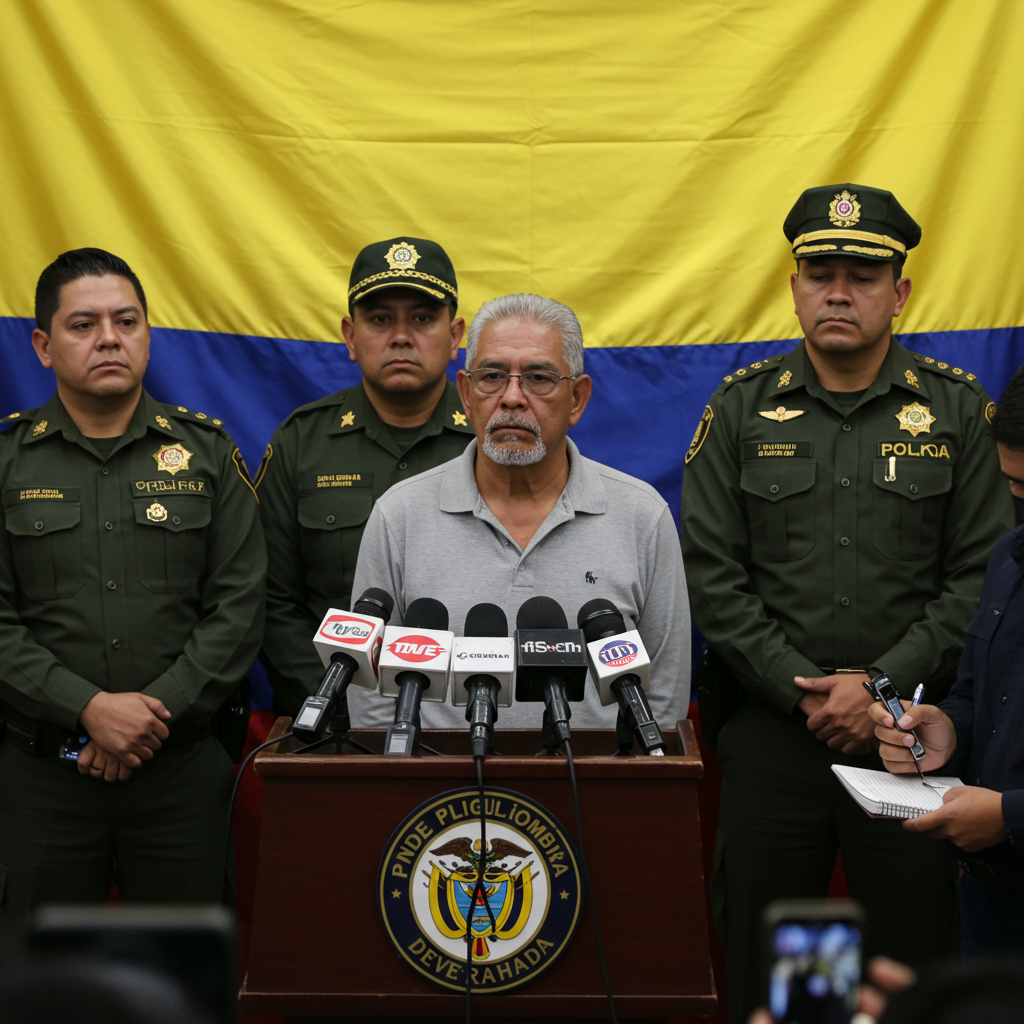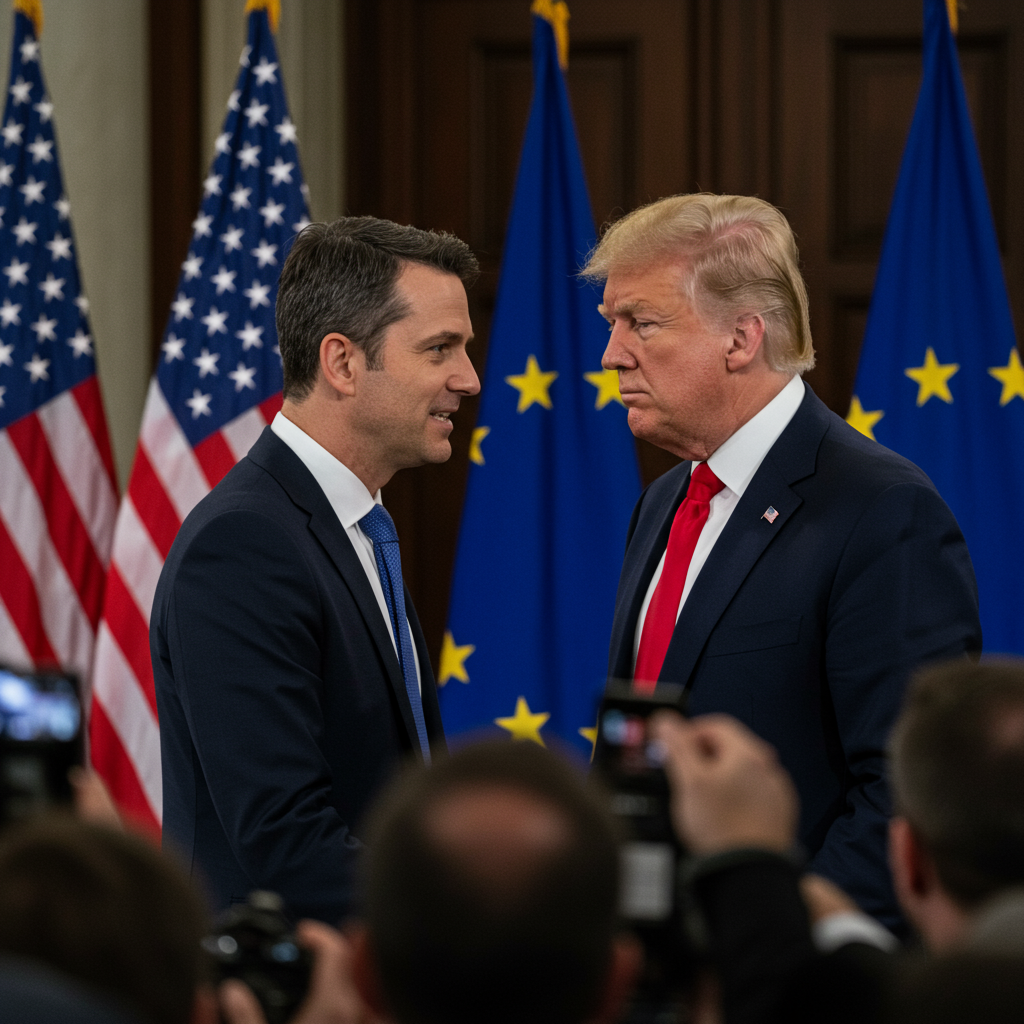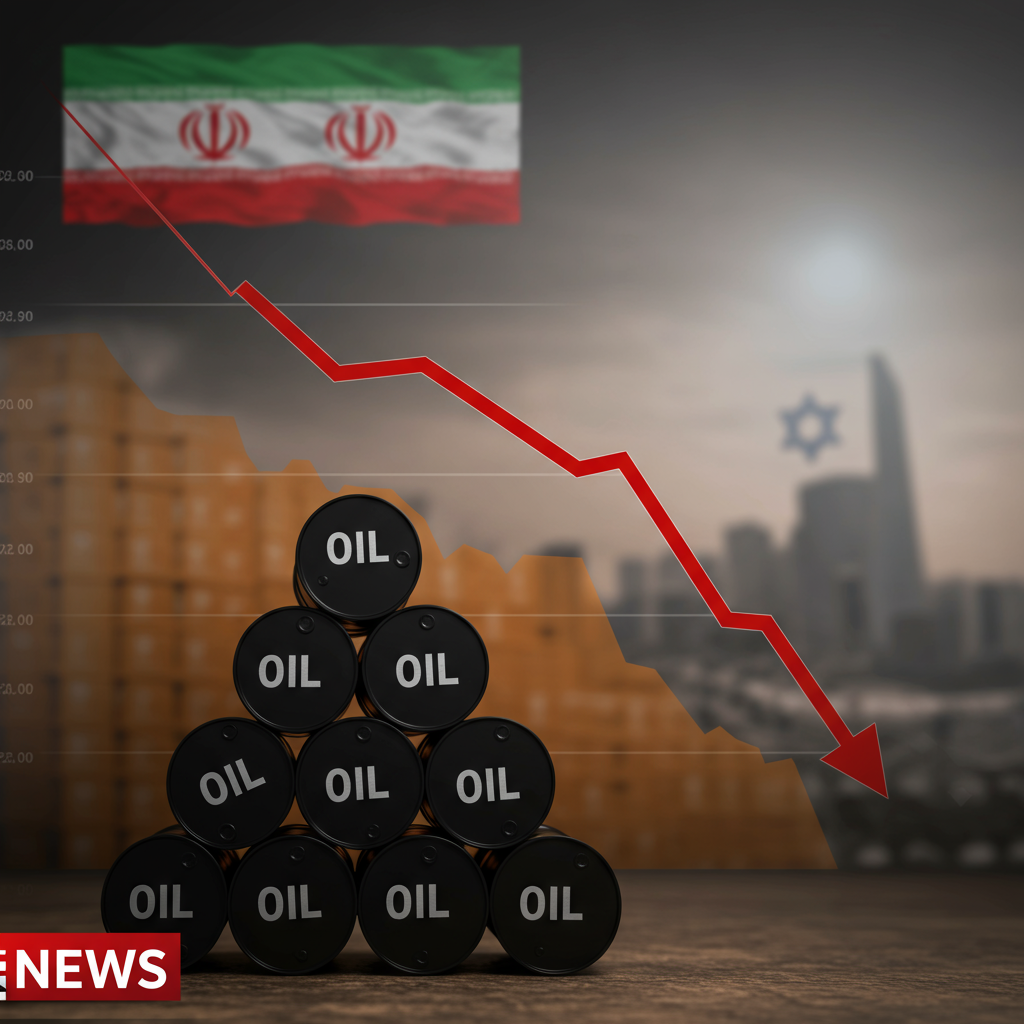Colombian authorities have announced a significant breakthrough in the investigation into the attempted assassination of conservative senator Miguel Uribe. Police have arrested the man they allege masterminded the violent attack that left the senator critically injured last month. This capture marks a pivotal moment in the ongoing effort to uncover who orchestrated the shooting during a campaign rally in Bogotá.
The arrest of Élder José arteaga Hernandez, identified by authorities as the alleged lead organizer, brings the total number of suspects apprehended to five. This includes a 15-year-old who police say carried out the shooting. The swift action by law enforcement, following an Interpol notice, underscores the seriousness with which Colombia is pursuing those responsible for this high-profile act of political violence. The investigation now intensifies its focus on identifying the “intellectual authors” behind the attempt on Senator Uribe’s life.
The Attack and Its Immediate Aftermath
The violent incident unfolded on June 7, 2025, in Bogotá while Senator Miguel Uribe was engaging with supporters. The attack was swift and brutal. According to reports and verified footage, a young individual rushed towards the senator. This attacker fired multiple shots at close range.
Senator Uribe sustained critical injuries. He was shot twice in the head and once in the left leg. Eyewitness accounts and social media videos from the scene depicted the severity of his condition. He was immediately rushed to a local hospital. There, he underwent multiple serious surgeries and remains in critical condition, fighting for his life.
Security personnel at the rally quickly apprehended the alleged shooter. He was identified as a minor, reportedly under 15 years of age. A 9mm Glock pistol was recovered at the scene. Following his arrest, contradictory statements emerged regarding the teenager’s motive. Some reports indicated he shouted he was hired by a local drug dealer. Other accounts suggested he claimed he “did it for the money, for my family.” Despite these initial statements, the minor subsequently pleaded “not guilty” to charges of attempted murder and carrying a firearm during his court appearance.
In the immediate aftermath, police also arrested four other individuals suspected of involvement. However, authorities soon shifted their focus towards identifying who planned and ordered the attack. President Gustavo Petro ordered a thorough investigation. He emphasized the need to look beyond the individual perpetrator. This highlighted the belief that the shooting was a coordinated effort.
Key Suspect Captured: Élder José Arteaga Hernandez
Colombian police announced the capture of Élder José Arteaga Hernandez on July 5. He was a fugitive at the time of his arrest. Authorities believe Arteaga Hernandez, also known by the aliases “Chipi” and “Costeño,” played a central role. He is accused of being the alleged mastermind on the ground. Police allege he organized and coordinated the assault. They claim he hired the gunman. Furthermore, they state he provided the weapon used in the attack.
Arteaga Hernandez was apprehended during a morning raid. This occurred at a house located in a western neighbourhood of Bogotá. His capture came shortly after Interpol issued a red notice for his arrest. This international alert signaled the urgency authorities placed on finding him.
According to Police Chief Carlos Fernando Triana, Arteaga Hernandez has a significant criminal history. His record reportedly spans over 20 years. He is wanted on several serious charges related to the shooting. These include “aggravated attempted homicide.” He also faces charges linked to the “manufacture, trafficking and carrying of firearms or ammunition.” Crucially, he is wanted for the “use of minors for the commission of crimes.” Police specifically allege he persuaded the 15-year-old to carry out the shooting. This detail paints a grim picture of the planning involved.
Authorities had previously suspected Arteaga Hernandez was near the park where Senator Uribe was shot. His arrest is considered a major step. It provides investigators with a potential link to the higher levels of organization behind the attack.
Who is Senator Miguel Uribe?
Miguel Uribe Turbay is a prominent figure in Colombian politics. The 39-year-old currently serves as a senator. He was elected in 2022. He represents the conservative opposition Democratic Centre party. Senator Uribe had announced his intention to seek his party’s nomination. He was positioning himself as a potential candidate for the 2026 presidential election. While reportedly not leading in early polls, his candidacy represented a challenge from the opposition.
Senator Uribe is known as a staunch critic of the current left-wing President, Gustavo Petro. He has publicly opposed key government policies. For example, he recently voted against a proposed labor reform referendum. He has also been critical of President Petro’s security strategy. This approach aims to end six decades of conflict. It involves negotiating with or pausing offensives against certain armed groups. Uribe has argued this strategy has negatively impacted security.
Uribe comes from a family deeply embedded in Colombia’s political history. His grandfather, Julio Cesar Turbay, served as President from 1978 to 1982. The family’s history is also marked by tragedy linked to the country’s long-standing conflict with criminal and armed groups. His mother was journalist Diana Turbay. She was kidnapped in 1990 by a group linked to the infamous drug lord Pablo Escobar. Tragically, she was killed in 1991 during a failed rescue operation. This personal history adds a layer of poignancy to the attack on Senator Uribe. It underscores the persistent threat political figures can face in Colombia.
Broader Context of Violence in Colombia
The attempted assassination of Senator Uribe did not occur in isolation. It happened amidst a backdrop of broader violence across Colombia. On the same day as the Bogotá shooting, bomb and gun attacks took place in the country’s southwest. These separate incidents resulted in at least seven deaths. The army and police attributed these attacks to a group that splintered from the Revolutionary Armed Forces of Colombia (FARC). This confluence of events highlighted the complex security challenges facing the nation.
The motive for targeting Senator Uribe specifically remains unclear. However, authorities are exploring several theories. Some speculate a potential link to rebel groups increasingly financing activities through drug trafficking. Others, including President Petro initially, suggested the involvement of an international crime ring, though no concrete evidence has been publicly presented for these links to Uribe’s specific attack. The political context is also undeniable given Uribe’s prominent opposition stance and presidential aspirations.
The Uribe incident, alongside other attacks, has reignited debate. It questions the effectiveness of the government’s current security approach. Senator Uribe’s criticisms of this strategy add another layer to the potential motivations being investigated. His lawyer also stated that Uribe had repeatedly requested additional security personnel prior to the attack. This raises questions about security protocols for high-profile figures. In response to the wave of attacks, President Petro has ordered increased security for government officials and opposition leaders alike.
The Ongoing Investigation: Seeking the Masterminds
With the alleged on-the-ground organizer, Arteaga Hernandez, in custody, the investigation enters a critical phase. The primary focus now is identifying the “intellectual authors.” These are the individuals who potentially ordered and financed the attempted assassination. Police Director Triana has confirmed that multiple theories are being explored. This suggests investigators are considering political, criminal, or perhaps even international motivations.
The attack has been described by some authorities using a term like “criminal outsourcing.” This implies that professional criminals may have been hired to carry out a politically motivated act. This model adds complexity to tracing the true perpetrators. It separates the planners from the implementers.
To aid in this complex investigation, the Colombian government has offered a substantial reward. A sum of up to 3 billion pesos (approximately S$956,607 or US$730,000) is available. This reward is for information leading to the identification and capture of those responsible for ordering the crime. International assistance has also been sought and received. The United States, the United Kingdom, and the United Arab Emirates are reportedly assisting Colombian authorities. This underscores the international concern surrounding the attack on a democratic political figure. The capture of Arteaga Hernandez is seen as a vital step. It potentially provides intelligence needed to unravel the full conspiracy. However, the path to identifying and apprehending those who gave the orders remains challenging.
Public Reaction and Future Implications
The violent attack on Senator Miguel Uribe triggered a significant public response. Tens of thousands of Colombians participated in silent protests. These gatherings demonstrated a collective rejection of political violence. Uribe’s family also spoke out. His wife expressed the profound pain and horror the incident caused. She emphasized that no family should endure such an experience. His father thanked supporters for prayers. He noted that despite the pain, the incident had “managed to unite this country in a single voice that rejects violence.”
The attack has undoubtedly heightened tensions in Colombia’s already complex political landscape. It serves as a stark reminder of the security risks faced by public figures. Especially those who challenge the status quo or hold opposition views. While the immediate focus is on Uribe’s recovery and the ongoing investigation, the incident carries implications for the 2026 presidential election cycle already underway. It raises concerns about the safety of candidates and the potential for violence to impact democratic processes. The government’s review of security protocols is a direct consequence of the attack. It is a necessary step to restore confidence in the safety of political activity.
Frequently Asked Questions
What is the latest update on the investigation into the Senator Uribe shooting?
Colombian police recently arrested Élder José Arteaga Hernandez. Authorities allege he was the mastermind who organized the attack. This brings the total arrests to five, including the alleged teenage shooter. The investigation is now focused on identifying the “intellectual authors” who may have ordered the attempted assassination. Authorities are exploring multiple theories and receiving international assistance.
Who is Élder José Arteaga Hernandez, the suspected mastermind arrested?
Élder José Arteaga Hernandez, also known as “Chipi” or “Costeño,” is a key suspect recently captured by Colombian police. Authorities allege he coordinated the attack on Senator Uribe. They accuse him of hiring the shooter and providing the weapon. Arteaga Hernandez reportedly has a long criminal history. He is wanted for aggravated attempted homicide, firearms offenses, and using a minor for crimes.
What is known about the motive for the attack on Senator Miguel Uribe?
The specific motive behind the attempted assassination of Senator Miguel Uribe remains unclear. Authorities are investigating several possibilities. These include potential links to organized crime, drug trafficking, or politically motivated reasons given Uribe’s status as a conservative opposition figure and critic of President Petro. Contradictory initial statements from the alleged teenage shooter have added complexity to determining the motive.
The capture of the alleged ground organizer is a critical step. However, the ultimate reasons and those who may have ordered the attack are still under intensive investigation. Colombia continues to grapple with the legacy of violence as it seeks justice for this assault on a prominent political figure.




